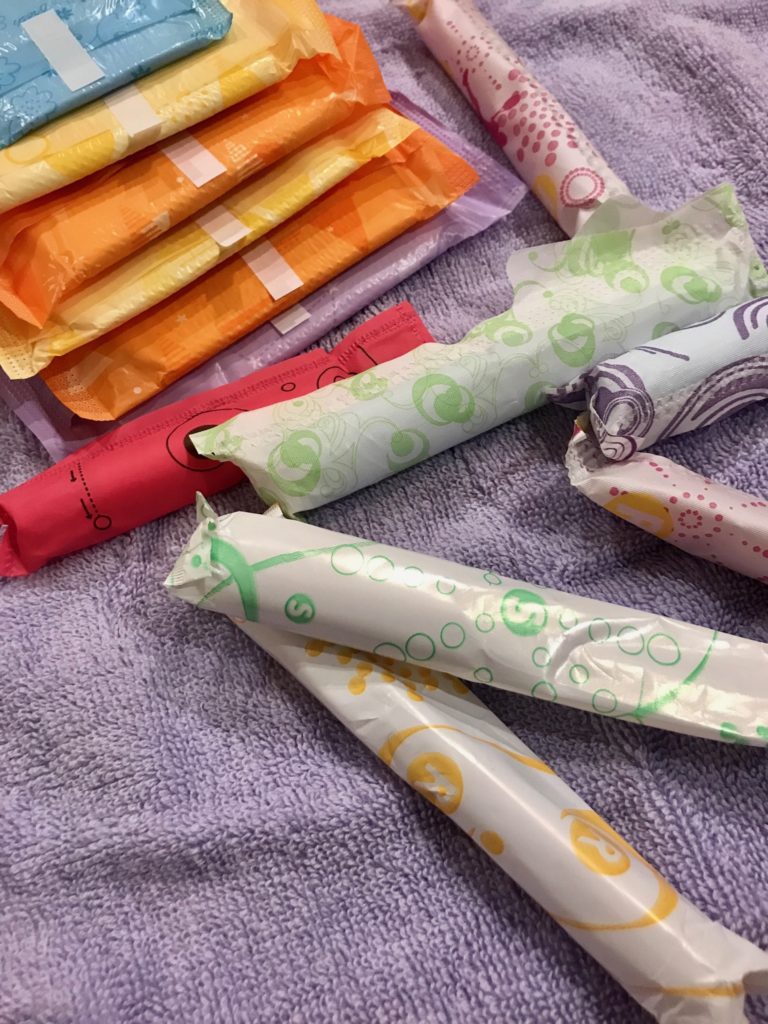
When you buy pads or tampons, do you try to hide them from your kids? Do you avoid talking about your or your partner’s period when kids are around? If so, I respectfully suggest you try the opposite approach: Use periods as a conversation opener. Really.
Having a period is a normal, healthy thing; it’s nothing to be ashamed or secretive about. In fact, it’s an awesome opportunity to talk with kids about bodies in a way that prepares them for a healthy view of sexuality as they grow up.
Since many parents don’t quite know how to start this kind of conversation, here are some suggestions for talking about periods even with very young children. Of course, you can modify these scripts however you like; they’re just starting points.
Introducing puberty:
“Sometime around middle school, people’s bodies start to change. Boys start to become men; girls start to become women. This change is called puberty. It doesn’t happen all at once. But by the time you’re done growing up, you’re taller and stronger, and your body is able to make babies.”
Periods in particular:
“Women and girls have a special part inside called the uterus. In a grown-up body, that’s where a baby could grow. Even though most of the time there won’t be a baby, women’s bodies get ready, in case. Every month, the uterus gets ready by shedding its lining. The lining gets washed out by a flow of blood that comes out of her vagina for a few days. It may sound scary, but it’s not; it’s a normal part of being a woman. It’s called menstruation or ‘having your period.’ The bleeding doesn’t hurt, although sometimes the woman may have uncomfortable cramps in her belly.”
However you modify this, be sure you convey accurate information in a reassuring way. If your child asks follow-up questions, do your best to answer them candidly.
Tampons and pads:
“When a teenager or grown woman is having her period, she needs to catch the blood so it won’t make a mess. She can put a special kind of pad in her panties to catch it. Or she can put something called a tampon inside her vagina to absorb it. Women change the pad or tampon every few hours during the days they’re having their period. Would you like me to show you a pad or tampon?”
If your child is curious, open a pad package and show them how the pad can be stuck into someone’s panties. Or open a tampon and show how the applicator pushes the absorbent part into the vagina. Explain how a woman can’t even feel the tampon after it’s inserted and that the string stays out so she can remove it later.
The Payoff
I know, this can be an awkward conversation. But consider how much you accomplish by having it:
You begin to prepare your child for puberty (which can start as early as age 8, so there’s no reason to wait to talk about it).
You normalize periods, which are, of course, a normal thing.
You practice using words like “vagina.” Periods are purely biological, unlike sex, which involves social and emotional elements. So menstruation is less emotionally charged for most parents than many other sex-related topics. Talking about periods helps you get used to saying “vagina” and “uterus” in front of your kids—and practice makes it easier.
You establish yourself as a source of information. I can’t stress enough how important this is. When your kids have questions about bodies, gender, puberty, or sexuality, you want them to come to you rather than to peers or the internet. Treat periods as the normal, matter-of-fact thing they are, and you’ll be off to a great start with the whole birds-and-bees series of conversations.